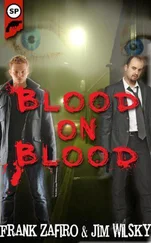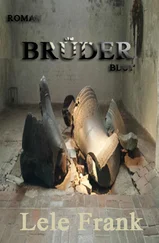Frank Tallis - Vienna Blood
Здесь есть возможность читать онлайн «Frank Tallis - Vienna Blood» весь текст электронной книги совершенно бесплатно (целиком полную версию без сокращений). В некоторых случаях можно слушать аудио, скачать через торрент в формате fb2 и присутствует краткое содержание. Жанр: Исторический детектив, на английском языке. Описание произведения, (предисловие) а так же отзывы посетителей доступны на портале библиотеки ЛибКат.
- Название:Vienna Blood
- Автор:
- Жанр:
- Год:неизвестен
- ISBN:нет данных
- Рейтинг книги:3 / 5. Голосов: 1
-
Избранное:Добавить в избранное
- Отзывы:
-
Ваша оценка:
- 60
- 1
- 2
- 3
- 4
- 5
Vienna Blood: краткое содержание, описание и аннотация
Предлагаем к чтению аннотацию, описание, краткое содержание или предисловие (зависит от того, что написал сам автор книги «Vienna Blood»). Если вы не нашли необходимую информацию о книге — напишите в комментариях, мы постараемся отыскать её.
Vienna Blood — читать онлайн бесплатно полную книгу (весь текст) целиком
Ниже представлен текст книги, разбитый по страницам. Система сохранения места последней прочитанной страницы, позволяет с удобством читать онлайн бесплатно книгу «Vienna Blood», без необходимости каждый раз заново искать на чём Вы остановились. Поставьте закладку, и сможете в любой момент перейти на страницу, на которой закончили чтение.
Интервал:
Закладка:
“I've never heard of him.”
“Private Friedel?”
“Who?”
“Friedel.”
“I've never heard of him, either.”
Rheinhardt looked toward the window. The day was overcast and the clouds radiated a putrid gray-green light.
“Lieutenant Hefner,” said Rheinhardt, “Ludka-the Galician girl you claim to have been fond of-Madam Borek, and two other women, Frauleins Draczynski and Glomb, were subjected to the most appalling violence.”
“I know.”
“Yet you do not seem”-Rheinhardt searched for a diplomatic phrase-”moved by their fate.”
“Inspector,” said Hefner, “I am an officer of the eighteenth. What do you want me to do? Weep like my grandmother? Bang my fist on the table and rail against heaven?” Hefner crossed his legs slowly and his spurs rattled. “I am a representative of His Majesty's army. A cavalryman. I wear this uniform with pride. We have a reputation to consider. I will not disgrace the regiment with some unseemly display of emotional incontinence. If you want to see that, go and interview an Italian corporal!”
15
LIEBERMANN LOOKED UP AND into the dome. Sixteen cherubs danced above eight circular windows, and the whole edifice was supported on gilded archways.
He adored the Natural History Museum. It was a place in which one could marvel at the diversity of life and contemplate the extraordinary power of science to unlock the secrets of the universe. Charles Darwin had dispensed with a Creator and replaced Him with a simple principle: natural selection. In his masterpiece The Origin of Species by Means of Natural Selection, or, The Preservation of Favored Races in the Struggle for Life, the great biologist had succeeded in describing the evolutionary process in a single, simple sentence: “Multiply, vary, let the strongest live and the weakest die.” It was at the same time terrifying and beautiful, and it explained everything: eyes, ears, birds, and desire-nothing was beyond the reach of Darwin's awesome theory.
“Where are we going now?” asked Clara.
“To see our relatives.”
“Did you invite them?”
“No-they're already here.”
“What!” Clara was quite obviously miffed.
The couple entered an immense hall filled with glass display cases, all of which were occupied by stuffed animals. Liebermann gestured toward one in which a troop of gorillas-a male, a female, and two young-languished beneath a scrawny tree.
Clara poked a finger into Liebermann's ribs and cried, “Max!”
“Well,” said Liebermann, “strictly speaking we are related.”
“You may be…”
“Indeed, I am perfectly happy to concede that the Liebermann bloodline carries with it certain characteristics that are decidedly pongid. Look at that male-he looks a little like my father, don't you think?”
Clara stepped closer to the glass, and immediately her expression brightened with an astonished smile. It was true. The gorilla did look a little like Max's father. There was something about the creature's heavy brow and rigid jaw that reminded her-albeit only vaguely- of Mendel Liebermann's disapproving mien.
“Max…,” Clara said, raising a hand to her mouth, at once both shocked and amused. “You shouldn't be so disrespectful… but”-she began to giggle-”it is an uncanny resemblance.”
“There you are, then. Indisputable proof of Mr. Darwin's hypothesis.”
Clara's expression changed. Her lips pressed together and she began to pout.
“What is it?” asked Liebermann, stepping forward and letting her lean back into his chest. There were no other visitors present- but Liebermann nevertheless kept a judicious eye on the doorway. A public display of intimacy would not be countenanced in a royal museum.
“Do you really believe it, Max? That we have-what is the word… evolved, yes? That we have evolved from apes?”
“Well,” Liebermann replied, “I certainly don't believe that Adam and Eve begat the human race after being banished from the Garden of Eden.”
Clara looked up. Her red lips were too inviting to resist, and Liebermann stole a quick, dry kiss.
“But apes…,” she said softly.
Liebermann kissed her again, on the cheek this time. Clara did not respond, and her expression became increasingly fixed in an attitude of seriousness. She seemed inordinately discomfited by the idea.
“Maxim…,” she began hesitantly.
“Yes?”
“If we evolved from apes… could we not-one day-become apes again?”
“There are a number of scientists and doctors who fear such a thing. They have suggested that civilized societies must be vigilant for signs of what they call degeneration. These include unrefined physical features and certain mental traits. But such a descent into chaos would take many generations. Thousands or perhaps even millions of years…”
Clara's mood lifted in an instant. It was as though her moment of dejection had never been. Her lips parted and she produced a brilliant flashing smile.
“Let's go into town, Max. Mother said that the jeweler's on Karntner Strasse has some garnet earrings in the window-just come in from Prague.” She pulled away. “I think they will go well with my new crepe-de-chine dress: you know the one, I wore it at the Weigels’ party? It cost one hundred florins-you must remember it.”
16
RHEINHARDT HAD FINISHED CONDUCTING his interviews. He was bid an indifferent farewell by Colonel Kabok, and given explicit directions to expedite his departure. He wended his way through the assorted collection of outbuildings and soon found himself trudging along the edge of a frozen parade ground. He followed a low perimeter wall of dirty sludge and ice that had been shoveled aside earlier in the day.
A regiment of uhlans seemed to be practicing a complex drill that required considerable skill and concentration. Each horse's head was inclined at an identical angle, and all the riders were pointing their swords upward. An officer, seated on a beautiful chestnut gelding, was obviously displeased with one of his command and cantered up to the unfortunate miscreant. He opened his mouth and bellowed a torrent of foul invective. In response, the rider seemed to make a few small adjustments, but Rheinhardt was unable to detect just how his comportment had improved. To his untutored eye, horse and rider looked just the same. The officer, however, appeared to have been appeased, and he withdrew from the squadron column.
Rheinhardt walked under an arch above which projected two sculpted horses’ heads; on closer inspection, he saw that the smaller of the pair represented the living horse, while the larger one depicted its protective headgear or armor.
It had not been a particularly productive morning. All the cavalrymen had been subtly uncooperative, and Rheinhardt was left with the impression that, simply by making routine inquiries, he was-in their eyes-questioning the integrity of His Majesty's army, and therefore, by implication, conducting an unpatriotic investigation. Perhaps it was this feeling of having accomplished so little that urged Rheinhardt to walk quickly past the welcoming steamy windows of several coffeehouses, with their blue uncovered gas jets flickering inside, to head off in the direction of Spittelberg. He was not sure what he hoped to achieve by making this detour, but he was of the opinion that action-any action, in fact-would remedy the sense of frustration that had been building up inside him since his first encounter with Colonel Kabok.
Rheinhardt raised the collar of his coat and made his way through a series of backstreets that led to his destination. Entering Spittelberg, he found that he had to take more care on the slippery cobbles. Although it was relatively early in the afternoon, the light was already beginning to fail. A woman, her head wrapped up in a voluminous scarf, was slowly ascending the narrow road. She was clutching a wicker basket, the contents of which were covered by a grubby napkin. Behind her a little boy followed, dragging a toy sword made from two pieces of wood joined by a rusty nail. Rheinhardt winked, but the diminutive soldier was too cold to respond.
Читать дальшеИнтервал:
Закладка:
Похожие книги на «Vienna Blood»
Представляем Вашему вниманию похожие книги на «Vienna Blood» списком для выбора. Мы отобрали схожую по названию и смыслу литературу в надежде предоставить читателям больше вариантов отыскать новые, интересные, ещё непрочитанные произведения.
Обсуждение, отзывы о книге «Vienna Blood» и просто собственные мнения читателей. Оставьте ваши комментарии, напишите, что Вы думаете о произведении, его смысле или главных героях. Укажите что конкретно понравилось, а что нет, и почему Вы так считаете.












